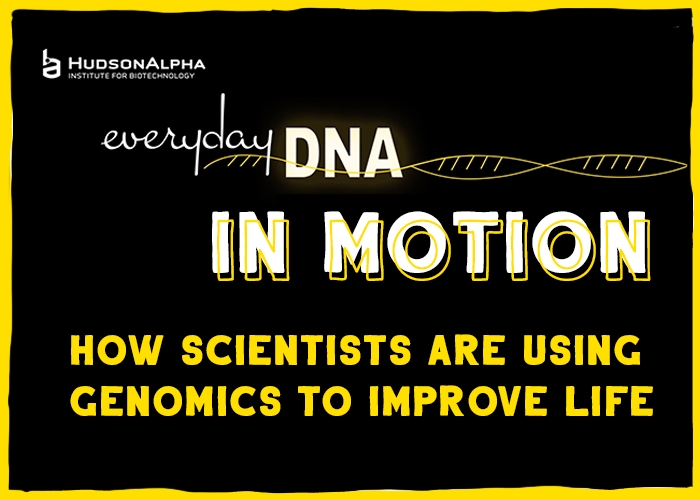Huntsville, Ala. – Scientists at the HudsonAlpha Institute for Biotechnology, along with collaborators at the University of Georgia and USDA Stoneville, have created a reference genome for Arachis hypogaea, the species of peanut that has become an important food crop over the last 9,400 years. By generating a reference genome and revealing the genetic mechanisms of the modern peanut, researchers at HudsonAlpha and their collaborators have helped speed the process of improving peanut crops.
Every year, roughly 44-million tons of this peanut are produced worldwide. Peanut crops play a major role in Alabama agriculture. Roughly half of the peanuts grown in the United States are grown within a 100-mile radius of Dothan, Alabama. The state has nearly 1,000 peanut farmers.
Crop breeding helps put healthier, more productive plants in the hands of those farmers. The process can move much faster with the assistance of genetics. Researchers can plant crops, sequence them when the plants are still small, then pick which plants have the desired genetic traits—like disease or drought resistance—and use them to create the next generation of crops. A reference genome gives those scientists a point of comparison, which makes the process possible. Otherwise, the plants must be grown all the way to maturity to determine which ones have the desired traits.
The research, made possible by funding from the Peanut Foundation, was recently published in Nature Genetics. With this reference genome, scientists can understand the history of changes that have occurred to the plant’s genetics in a relatively short time since the peanut became a crop plant.
Selective breeding in agriculture allows farmers to plant crops with greater water efficiency, drought resistance and yield.
“Sometimes we see peanuts lose resistance to key diseases and pests. With a reference genome, we can pinpoint where that happens, then our partners can selectively breed to prevent it,” said HudsonAlpha faculty investigator Jeremy Schmutz. “We found pieces of the peanut genome changing in novel way which could open up a much greater understanding of how crops change over time, allowing us to grow even hardier plants with less resources.”
About HudsonAlpha: HudsonAlpha Institute for Biotechnology is a nonprofit institute dedicated to developing and applying scientific advances to health, agriculture, learning, and commercialization. Opened in 2008, HudsonAlpha’s vision is to leverage the synergy between discovery, education, medicine, and economic development in genomic sciences to improve the human condition around the globe. The HudsonAlpha biotechnology campus consists of 152 acres nestled within Cummings Research Park, the nation’s second largest research park. The state-of-the-art facilities co-locate nonprofit scientific researchers with entrepreneurs and educators. HudsonAlpha has become a national and international leader in genetics and genomics research and biotech education and includes more than 30 diverse biotech companies on campus. To learn more about HudsonAlpha, visit hudsonalpha.org.
Media Contact:
Margetta Thomas
mthomas@hudsonalpha.org
256-327-0425


